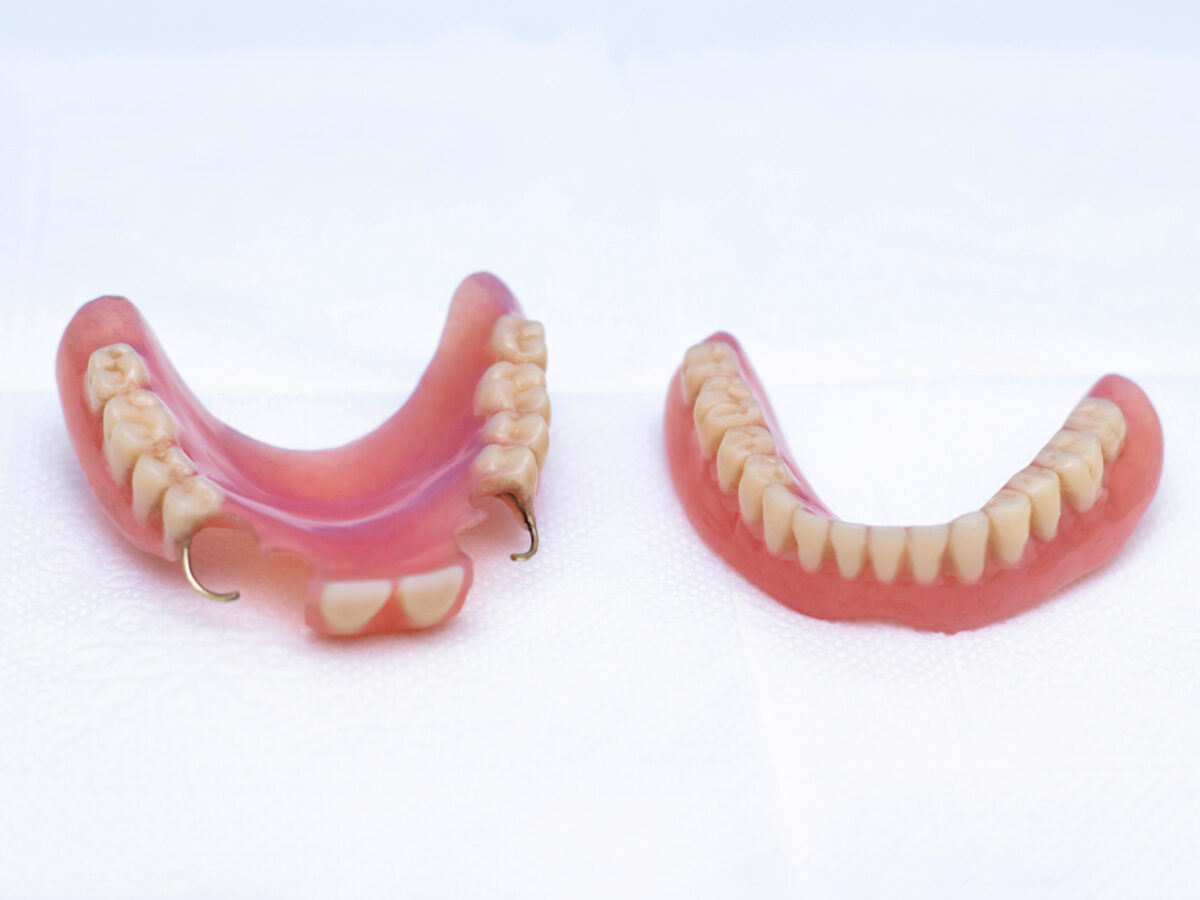Blog
Dental hygiene tips for healthy teeth & gums

Denture Reline Vs Rebase: What You Need To Know
For individuals who lack teeth, dentures are crucial for restoring oral function and enhancing comfort and appearance. However, due to wear and tear or structural changes in the mouth, dentures may eventually become uncomfortable or lose their snug fit. Patients often consider denture rebasing and relining as their two primary options when addressing these issues. This post will explore the differences between these two procedures when to use them, and how they can improve the functionality and comfort of your dentures.
All About Denture Adjustments:
Understanding the importance of routine denture adjustments and why they might be necessary is essential before delving into the specifics of the denture rebasing and relining processes. Both complete and partial dentures require proper care to maintain a proper fit and provide the wearer with the best possible experience.
Changes in the soft tissues and jawbone over time can lead to an uncomfortable or loose fit. Factors such as natural bone resorption, tooth loss, or weight loss may contribute to these changes. Additionally, wear and tear on dentures can affect their performance and appearance.
Regular denture adjustments are vital to address these issues and maintain optimal comfort and functionality. Denture adjustments involve minor modifications to the teeth or denture base to improve fitand function.
All About Denture Relining Process:
The denture relining process adjusts how the denture base fits against the gums. Typically, additional material is added to the tissue side of the denture to enhance comfort and fit. There are two main types of denture relines:
Soft Reline: Soft relines use a pliable, soft material that adheres to the denture’s tissue side to create a cushioning effect.
Hard Reline: A hard reline involves resurfacing the tissue side of the denture with a hard acrylic material.
When to Consider Denture Relining:
You might consider having your dentures relined if you experience any of the following issues:
Loose Fit: Your dentures may feel loose, shift, or cause discomfort when eating or speaking.
Sore Spots: Poorly fitting dentures can create pressure points or sore spots on your gums.
Pain and Irritation: You may experience discomfort, pain, or inflammation in your oral tissues while wearing dentures.
Decreased Stability: Difficulty keeping your dentures in place can make speaking and chewing challenging.
A Glimpse of Denture Rebase:
In contrast, denture rebasing involves keeping the original denture teeth while replacing the entire acrylic denture base with a new one. This procedure is typically necessary when the base material is worn, cracked, or otherwise damaged, but the teeth remain in good condition. The aim of denture rebasing is to restore the structural integrity of the denture, improving its appearance and functionality.
When to Rebase?
The Denture Foundation Is Damaged: If the acrylic foundation is worn out, broken, or otherwise compromised, it may affect the denture’s overall structural integrity and fit.
Severe Wear and Tear: Dentures that have been worn for an extended period may exhibit signs of significant wear and deterioration.
Enhancing Comfort: Both rebasing and relining are critical for making dentures more comfortable and functional. Here’s how they achieve this:
Improved Fit: Denture relining adjusts the tissue side of the base to conform to the current shape and contours of the oral tissues, eliminating any loose or uncomfortable areas and improving overall comfort.
Painful Spot Relief: Denture relining helps alleviate discomfort and irritation caused by ill-fitting dentures by eliminating pressure points and sore spots on the gums.
Longevity: Denture rebasing extends the life of your dentures by repairing the damaged acrylic base, thereby preserving the health of your natural teeth.
Aesthetics: Both procedures can enhance the appearance of your dentures, making them look more natural and attractive.
Wrapping Up
In conclusion, denture rebasing and relining are valuable procedures that address common issues encountered by denture wearers, such as wear and tear, discomfort, and a loose fit. It is crucial to know when to consider each of these procedures to maintain your overall well-being and oral health.
If you notice any issues with your dentures, including sore spots, a loose fit, or visible wear and tear, see your dentist. They will assess the condition of your dentures and recommend the best course of action, such as rebasing or relining.


